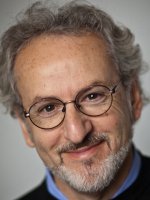Human organs on chips and programmable nanotherapeutics
to

Donald E. Ingber, M.D., Ph.D.
Founding Director
Judah Folkman Professor of Vascular Biology, Harvard Medical School
Professor of Bioengineering, Harvard School of Engineering & Applied Sciences
Wyss Institute for Biologically Inspired Engineering at Harvard University
Dr. Ingber is a founder of the emerging field of biologically inspired engineering. At the Wyss Institute, he oversees a multifaceted effort to identify the mechanisms that living organisms use to self-assemble from molecules and cells; to apply these design principles in the development of advanced materials and devices for health care; and to improve sustainability. In addition, Dr. Ingber has made major contributions to mechanobiology, tissue engineering, tumor angiogenesis, systems biology, and nanobiotechnology. He was the first to recognize that tensegrity architecture is a fundamental principle that governs how living cells self-organize to respond biochemically to mechanical forces, and to demonstrate that integrin receptors mediate cellular mechanotransduction.
Summary
Dr. Ingber will describe the work that his group has been carrying out in the Biomimetic Microsystems and Programmable Nanomaterials platforms at the Wyss Institute, as well as their new model for innovation, collaboration, and technology translation. The goal of the first platform is to engineer human “Organs-on-Chips”: microchips lined by living human cells created with microfabrication techniques that recapitulate organ-level functions as a way to replace animal testing for drug development. Dr. Ingber will review recent advances his group has made in developing multiple organ chips, including human lung, gut, and bone-marrow chips. He will also describe ongoing efforts to develop more than 10 different organ chips, integrate them into a “human body on chips,” and engineer an automated instrument for real-time analysis of cellular responses to pharmaceuticals, toxins, and other chemicals. The goal of the second platform is to create multi-functional nanotechnologies for regenerative medicine and drug-delivery applications with the long-term goal of developing injectable programmable devices for biomedicine. He will describe new biologically inspired nanotechnologies, including a fluid Shear-Activated Nanotherapeutic delivery system that targets drugs specifically to vascular occlusion sites, and a dialysis-like therapeutic device that combines microfluidics and nanoparticles to cleanse pathogens from the blood of septic patients.
This page was last updated on Wednesday, August 11, 2021